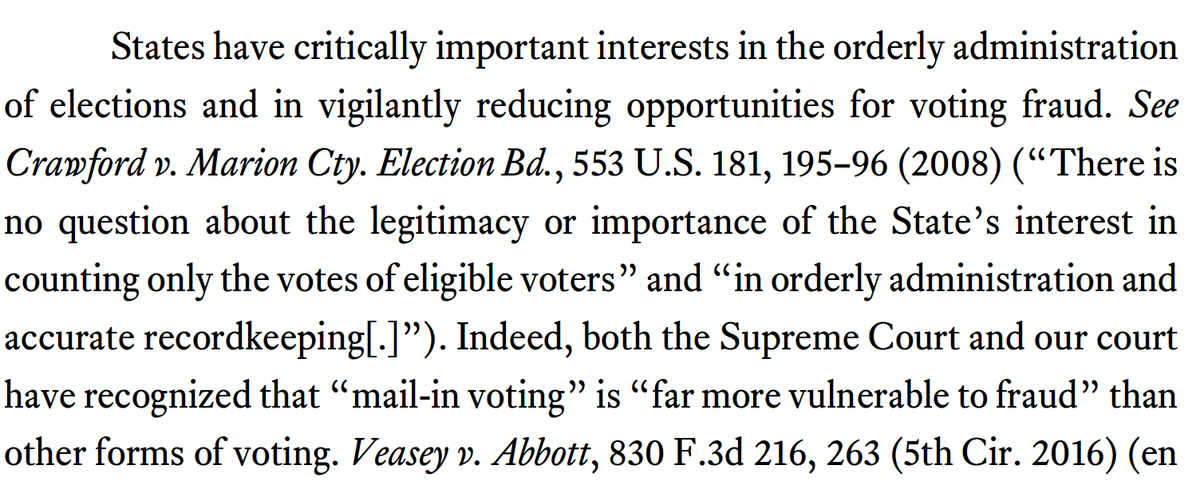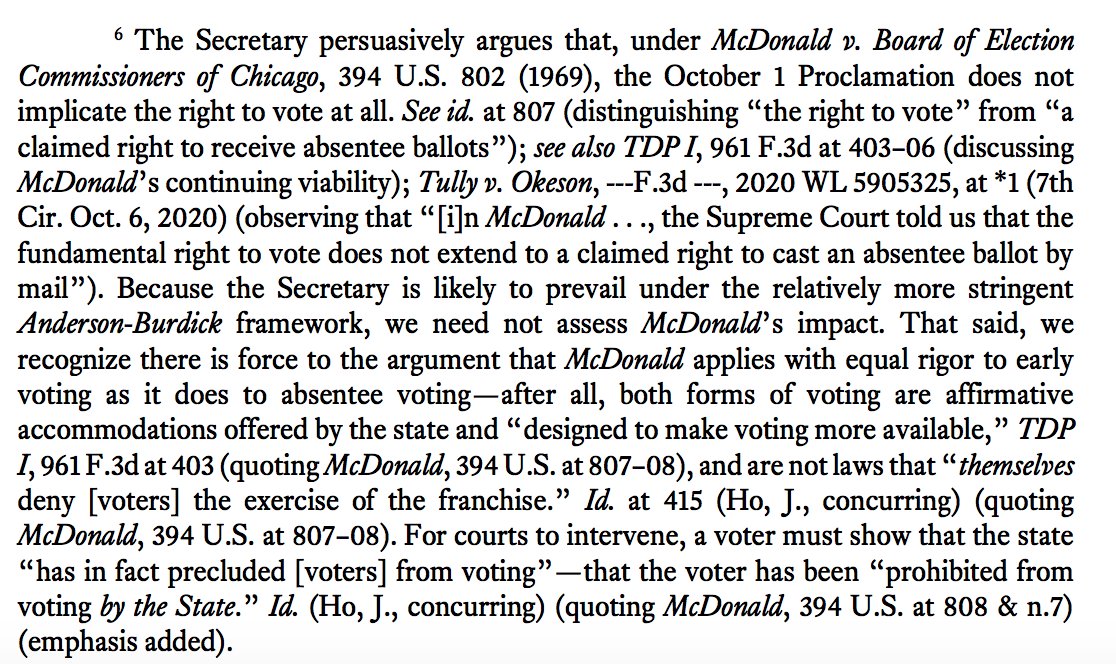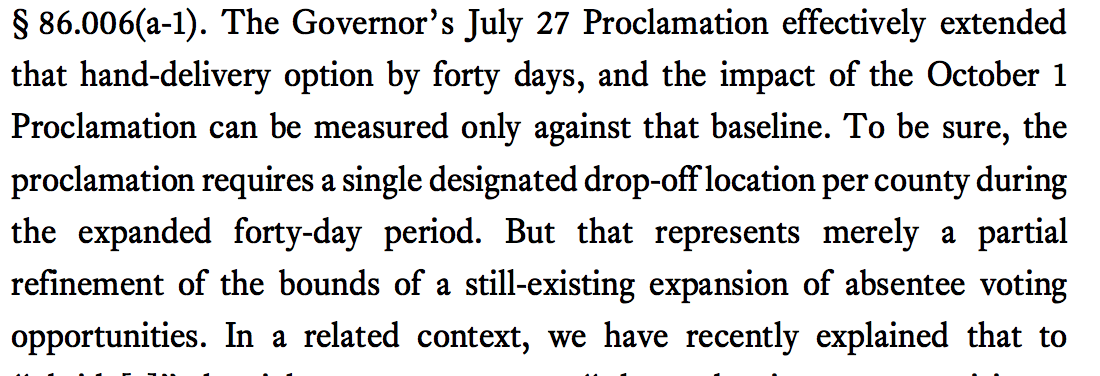
This is an interesting opinion written by a Trump-appointed district judge on mask mandates and the Voting Rights Act.
Is this a change in the voting rules that the 5th Circuit will reverse? We shall see.
Is this a change in the voting rules that the 5th Circuit will reverse? We shall see.
https://twitter.com/ZoeTillman/status/1321444193844236292
The basic gist here is that not requiring masks at the polls disproportionately harm minority voters because they are at greater risk of COVID-19--so they are less likely to feel comfortable voting.
Texas is one of only 5 states that won't let anyone vote by mail cause of COVID concerns. So these voters face the choice of going to the polls with a higher risk or not voting. Court finds the effect of the mask mandate violates the VRA.
🚨Texas also requires voters to lower their masks if poll workers ask to comply with the state's photo ID law. If a voter refuses, they must a provisional ballot and visit clerk's office later to have ballot count.
Also, Americans overwhelmingly support a mask mandate at the polls, 79% of respondents in a survey I conducted with a UK political science prof support a mask mandate--and there was little partisan difference. politico.com/news/magazine/…
The court here says Purcell (don't change election rules too close to election) doesn't apply: "Placing polling sites within statewide mask mandate does not diminish the integrity of counting ballots, nor does it require significant effort to inform voters and Administrators."
Anyway, my review of federal appeals court cases so far suggests 5th Cir will reverse and give deference to state in its election procedures. But court makes a strong case here that requiring masks will help voters and that Purcell shouldn't apply. /end
• • •
Missing some Tweet in this thread? You can try to
force a refresh






